There are downsides with downloading their app just to input bad data, but it’s a fun thought.
edit: While we’re at it we might as well offer an alternative app to people.
I posted in !opensource@programming.dev to collect recommendations for better apps
The post: https://lemmy.ca/post/32877620
Leading Recommendation from the comments
The leading recommendation seems to be Drip (bloodyhealth.gitlab.io)
Summarizing what people shared:
- accessible: it is on F-droid, Google Play, & iOS App Store
- does not allow any third-party tracking
- the project got support from “PrototypeFund & Germany’s Federal Ministry of Education and Research, the Superrr Lab and Mozilla”
- Listed features:
- “Your data, your choice: Everything you enter stays on your device”
- “Not another cute, pink app: drip is designed with gender inclusivity in mind.”
- “Your body is not a black box: drip is transparent in its calculations and encourages you to think for yourself.”
- “Track what you like: Just your period, or detect your fertility using the symptothermal method.”
Their Mastodon: https://mastodon.social/@dripapp
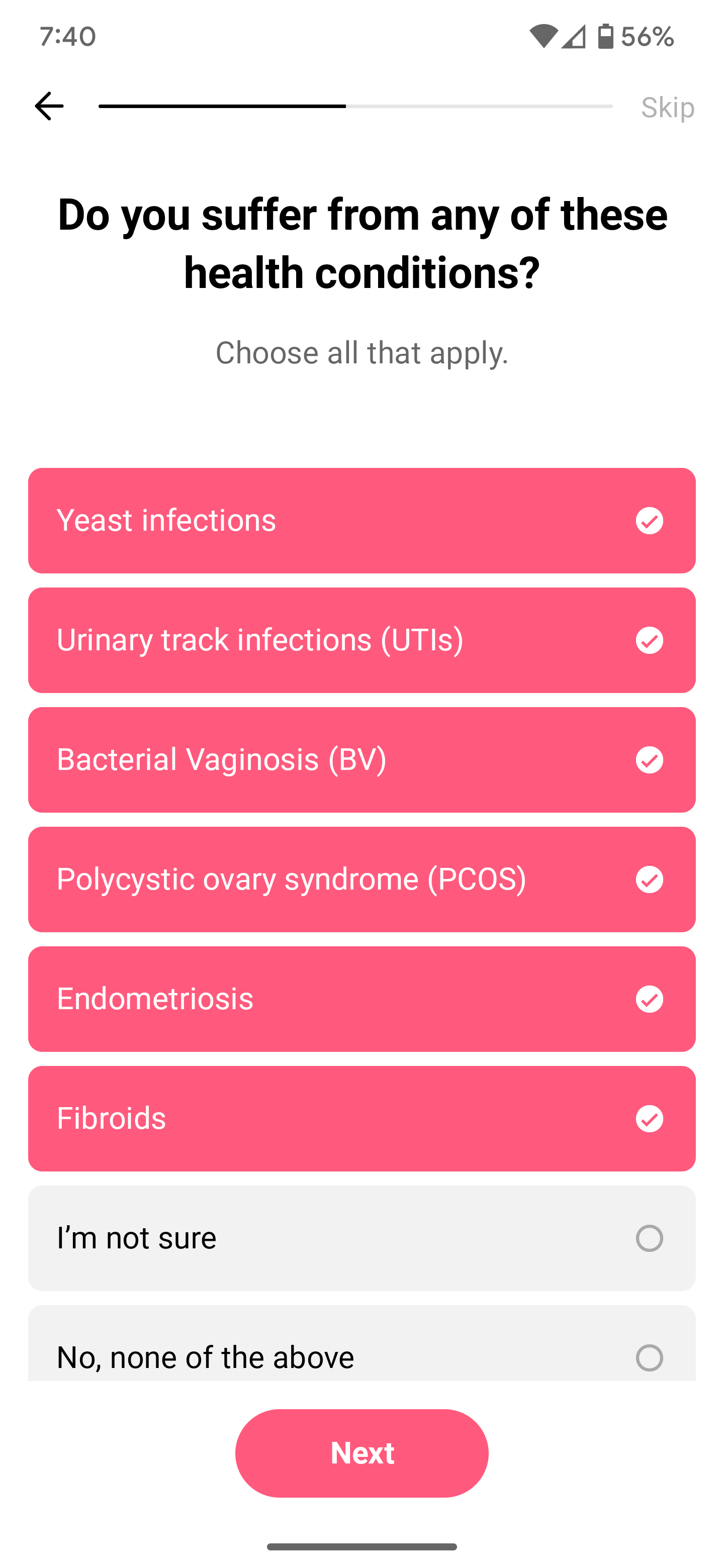
I’m doing my part!
These symptoms might actually be related to the 12k mountain trail run I did yesterday after work, and I’m pretty sure the bleeding is because I got scratched by a spiky bush, but you cannot be too careful fellas
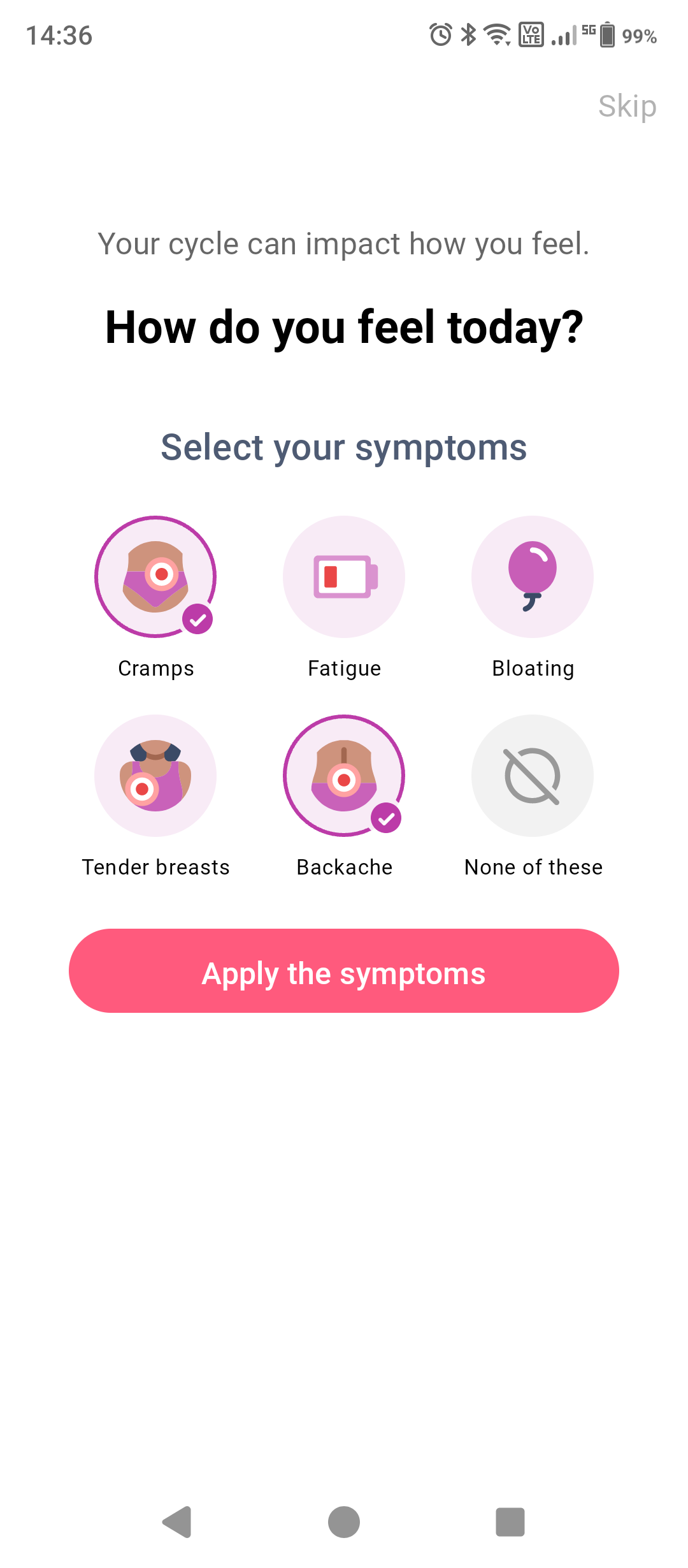
As with anything involving the complex bundles of systems in the human body, other issues can overlap and mask symptoms of a menstrual cycle, impending or otherwise.
Yes
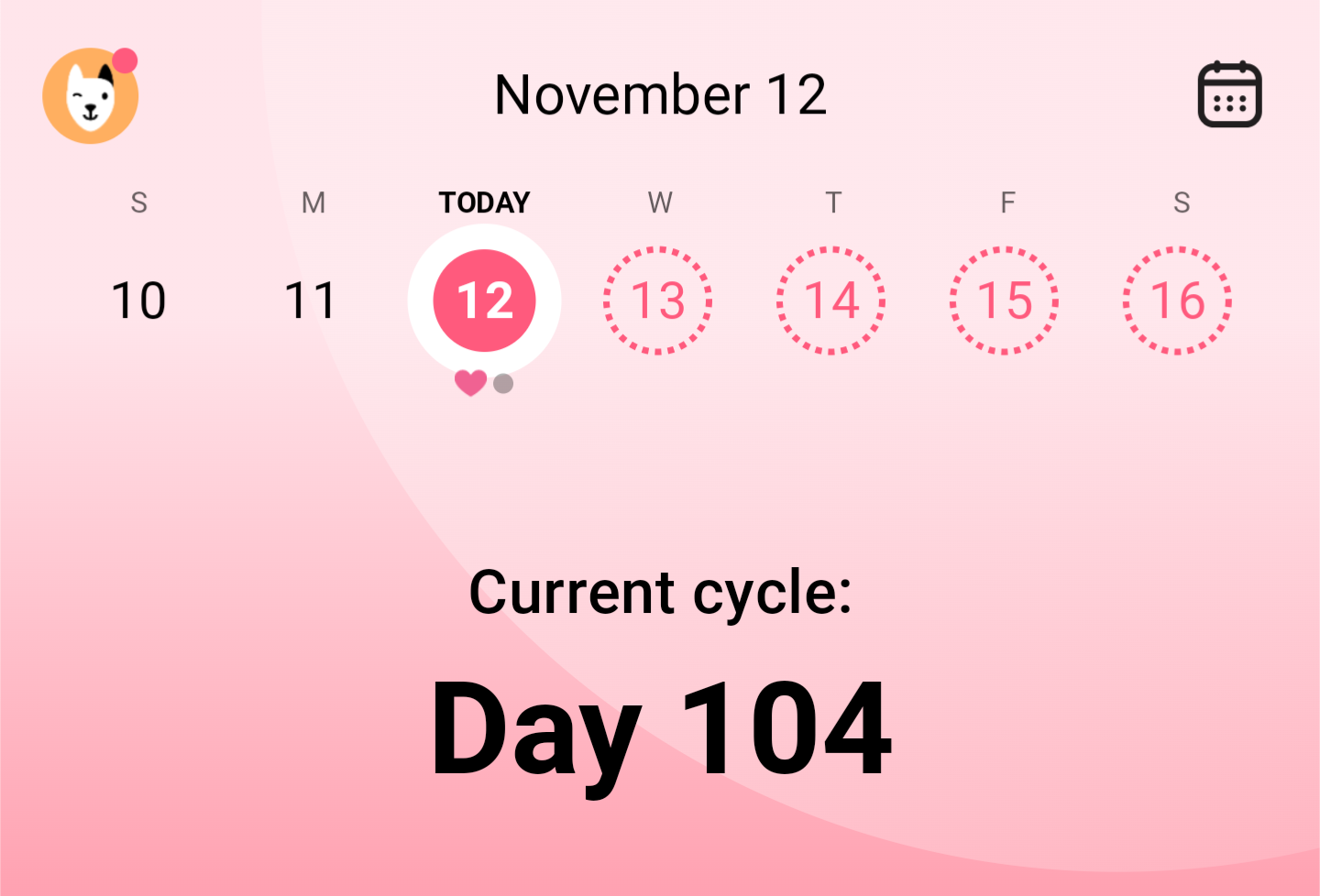
I don’t want to victim blame but if using an app is optional and it could get you in trouble with the law (regardless of how bad the law is), you should not use it.
Having said that, as a dev, please pollute data as much as possible.
Management needs to learn how valuable good data is and good data comes with proper consent (most people wouldn’t share their data if they could opt out).
That’s not great advice for people who weren’t afraid of law enforcement in the past and are now feeling exposed due to data they already gave away.
Not to mention: a lot of people don’t really understand how technology works. They just use the app without even thinking where that data goes. Like yeah, it would probably behoove those people to educate themselves on the technology they’re using, but I certainly don’t want them to face unjust legal repercussions just because Republicans hate anyone with a vagina.
Most data already provided won’t be useful if they stop providing the data. Generally the concern is for miscarriages/abortions, so just change the data to indicate you were having a regular period and then request a data deletion/account close/stop using the app is actually pretty much as good as it’s gonna get.
These apps are very helpful for people who have irregular cycles or who are family planning. I relied heavily on a similar app in high school, because my monthlies weren’t monthly. I was able to share that data with my doctors to help better understand my body.
This really indicates a need for self-hosted solutions.
Absolute worst case you could always keep track of it as a raw text/markdown/excel/Libre calc/whatever your preference is. You’re not going to get any predictions or useful data out.
But it would at least provide a record for your doctor if need be. And as long as you encrypt the device you store it on, or the directory its stored in, it’s relatively safe to do so.
How does this work with non technical people?
Write it down on paper or put it in a word document or excel spreadsheet (or FOSS equivalent if you don’t have Office 365).
From a medical perspective, a handwritten journal with dates and notes about the amount/consistency of the flow as well as associated symptoms would be the most useful. Having irregular periods that last for 3 days with very heavy bleeding would have a very different diagnostic approach than irregular periods that last 3 to 5 days with normal bleeding and horrible cramps.
A potentially good option if you’re on Android is putting it in your secure folder. It’s basically just a sub directory for all your files, notes, and pictures, but it an encrypted form.
So if you’re technical enough to understand jow to enter a password (most people), then you have an easy to use option. Just don’t forget your password, and don’t set it to something easy to crack. It’s the same rules for any other password.
I’m sure there are similar options for windows/mac/ios
But if you’re a more technical user, by all means it is in your interest to encrypt the whole thing.
This is a legitimate concern.
A teenage girl who is looking to track her cycle is likely not educated on data security - as someone who works with teens, Gen Alpha is shockingly tech illiterate. They are going to go into the App Store, type “period tracker” and download the first thing that pops up.
Non technical people are not raccoons, they can use a text file.
I teach community IT.
They really can’t.
Sometimes I feel like they are, or maybe I’m the raccoon but yes
The number of people I deal with at work that have no idea what a file is…
And forget about folders.
Why would you blame them if they have all those “conveniences” like the default save location, file managers focusing on pics to click and and not directory structure, and so on. Of course they don’t know, they don’t know they have to know and thus don’t think they could choose or something.
These things were not invented for computer-literate people. The way they were being made in year 1999 they were usable for common folk.
Blaming normies as people who can’t do things is delusional. Modern UI\UX, which is plain stupid and unprofessional, is the problem. Normies are fine. They can be taught to navigate a paper book, right? Then they can do this.
By the way, I still remember my fury when auto-complete suggestions, AJAX search on webpages, default locations for saving files and other such things started becoming the only considered way to do anything. Because I knew where this all leads. It’s not hard to imagine how a person who’ve never had anything else will form their habits.
And not only these “simplifications” are everywhere, but also they UI\UX has become more cluttered everywhere! It’s an unusable mess, and it being that is justified by having some “convenience” magic that makes it even bigger mess.
This is why Windows should have remained a shell for DOS. On Unix-like systems the competition between various desktops slows down this degeneracy. That’s what they are trying to solve with Wayland, so that people could only use Gnome, KDE and a couple of half-functional compositors with too long config files to set up with my ADHD.
I CAN’T FIND MY DOCUMENT!!!
Okay, where did you save it?
I DON’T KNOW, I JUST CLICK SAVE LIKE ALWAYS!!!
*remotes into workstation and clicks save only to find the file was saved in their temp directory*
I had that conversation hundreds of times when I was doing desktop support…
They don’t know what a text file is.
They don’t know what a file is, but they can use an app store, to download an app, create an account, log in, and interface with the UI to load data.
Got it
Yes, actually. Downloading apps, making an account, logging in, and using an app are all things they have done before. Opening up Notepad on their computer (if they have one) and saving a text file then navigating back to it later and opening that file is something they probably have never done before.
I did specify a text file. And yes, they’ve been doing the second one since they were 5. Not all tech skills are transferable.
Most probably cannot, especially in an organized way
Legit only comment so far to not just say “PAPER EXISTS1!1!1!1!” So props for that.
Can I ask how polluting the data will help? Most apps that don’t care about privacy can probably identify people with zero issues. I bet people are giving these apps location data etc.
I don’t know what you mean by good data comes with proper consent. Like, ideally all data was offered with proper consent, but how does that make data better or worse? If anything, data given without consent is likely to be more wholistic/unedited since they were not given time to redact/remove info. If someone stole my phone and took all my data, they would have “better data” than had I been informed this would happen and given time to wipe my phone.
Can I ask how polluting the data will help?
It makes data less reliable.
How do we know if a certain profile is genuine vs someone dicking around. Or mostly genuine and the person didn’t do some malicious compliance for certain parts of the app they don’t care about.
If it becomes a social trend and someone gets caught, it would be easier to say they lied cause they wanted to do a tick tock challenge.
I don’t know what you mean by good data comes with proper consent.
When someone wants to help the data collectors then they would do more proper hygiene to their profile, keep things up to date and give honest feedback. Whereas someone like me never gives consent for data without being forced, so I always try to give as little and lie as much as I can.
I guess the assumption I made was that practically everyone knows apps and websites track them in some shape or form (even the least tech savvy person knows websites get total amount of visits), so “acting like no one is tracking you” isn’t ever true to begin with. Especially given this context for a period tracking app.
Appreciate the reply. I guess I see how conceptually that makes sense, but in practice I don’t see it helping someone actually accused of anything. If a woman in a red state is brought up on charges and her app data backs that up and the excuse given is “I was lying when I added that I was pregnant” I don’t see that really making a difference. I guess it technically makes it more plausible, but I’m not sure it’s moving the needle as much as would be needed in that case.
If my doc asked me what my diet was like I would try to give accurate info but if I needed to input my latest meal every time I sent a text, my phone would think I only ate ice cream. I guess I struggle to think of an app where I would give accurate data if given the option so I just assumed people would lie if asked honestly for it. I still am not sure most apps would do better if they were more transparent, but that probably speaks more to the scamminess and predatory nature of apps than anything else. There would be more paid only apps for sure.
Period tracking is a very good tool for understanding your health. Issues may be spotted very early in some cases.
If it’s required for preventative healthcare, the blame is solely on the exploitative app operators for any data safety concerns.
Okay, but since real menstrual cycles are typically highly regular - wouldn’t it be fairly easy to filter out the fake ones?
Perimenopause can happen in women a lot younger than most people think. I’m in my 30s and dealing with perimenopause symptoms such as hot flashes and irregular periods.
I’m supposed to be tracking my periods to help my Dr decide if that’s what’s going on, but because if this anti abortion garbage I have to do it manually on paper which I’m terrible about remembering to do(brain fog is another symptom)
So yeah, irregular periods are common for many reasons(endometriosis for example), but the most common one every ovulating woman eventually faces is perimenopause and menopause.
Irregular menstrual cycles are very common and happen for a lot of different reasons. Also, there are different kinds of “regular” periods. Someone could be said to have regular periods even if they happen on shorter or longer cycles than the typical 28-30 days provided that it’s a consistent pattern without significant deviation for that person.
Still more regular than randomized data.
You do not have a good understanding of menstruation and gynecology if you think that’s always the case. There are so many variations of irregular menstruation that trying to exclude data based on irregularities would be very difficult or get rid of a lot of legitimate irregular data.
So I just installed this right now after seeing this, and man this app has a lengthy initial startup process with dark patterns and everything. Now apparently I’m ovulating in two days. 🤭
I’m “abnormal” 🫨
So it’s not normal to have a 55 day cycle? Oh snap!
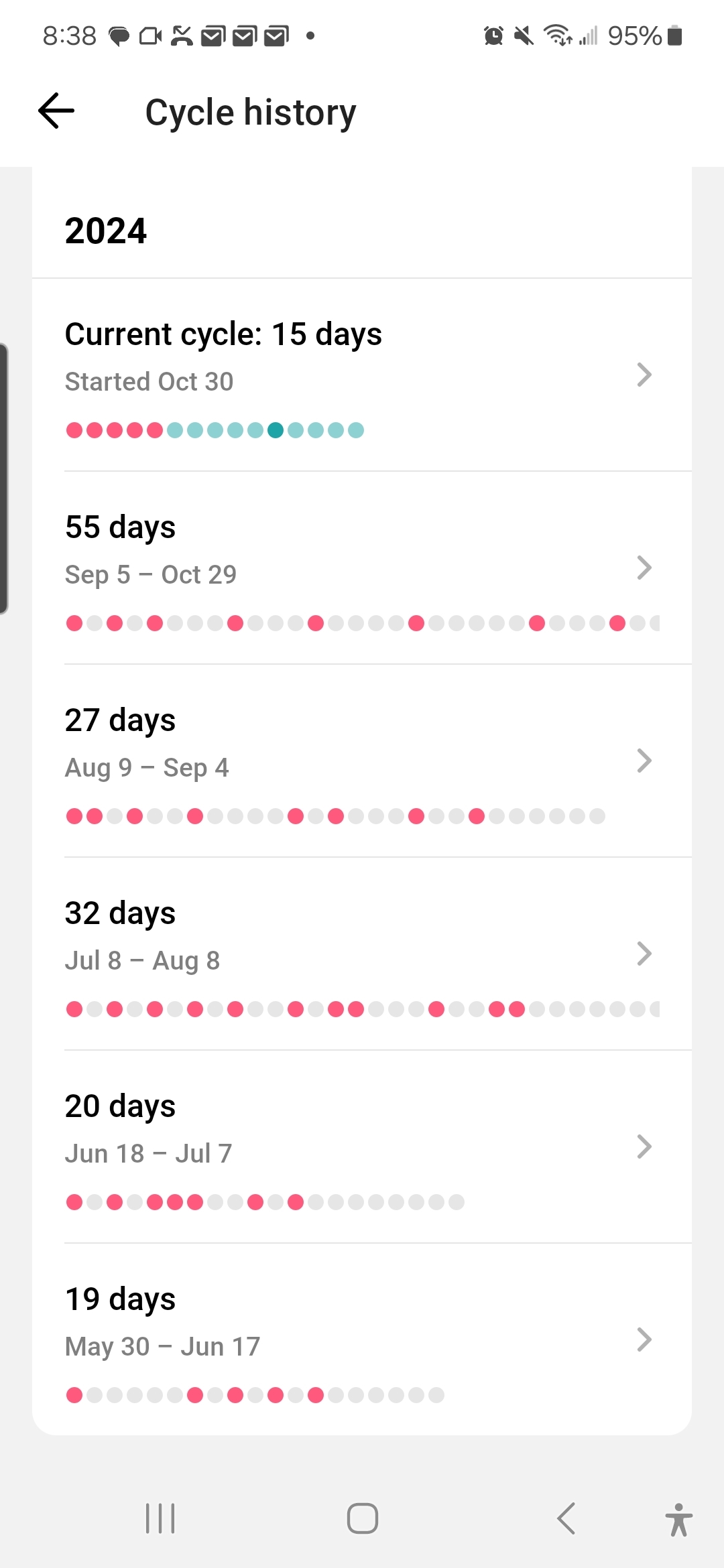
Is it FOSS? Or does it collect tons of data?
Oop, read the post better. Nevermind hahaha
I’m going to learn how to orgasm!
Done. If only I could script it…
I signed up for the app and there are so many dark patterns used in the signup process it’s insulting.
iOS has a first party health app that has menstrual tracking. I’m under the impression Apple takes data security seriously. If you don’t, self hosted is probably best.
I have several old Android phones sitting in a drawer. They’ve just been given a glorious purpose.
Multiple users ☺️ on each.
The Shelter app (on F-droid) gives you simple access to Android work profiles, allowing you to install multiple copies of apps.
Isn’t it built in now? I have that natively.
To be honest, I don’t completely know. I never used work profiles before Shelter, so I’m not 100% sure.
Shelter uses the Work Profile. With android 15 you can enable Private Space, which is about the same, for a third instance of an app. Work profile requires an app that manages it like Shelter, private space just works.
AfaIk, Shelter is using the built in work profile of Android, as not every UI/ vendor has made it available to the users. (There is no visible button or option in the settings menu.)
E.g. Samsung smartphones have a “work mode”, but the last time I’ve used it (It may be different in current models), it only allowed for second accounts of selected apps like WhatsApp and hence, was a crippled implentation of the Android feature. My Android 11 Samsung tablet has complete multi user support, not only “work mode”.If you are required to install something like InTune by your company, that’s what controls what apps you can install in Work mode. It’s a good trade off because it enforces good separation for them - clipboard is blocked between profiles, data too - but also for me. One little toggle and those apps and the profile are disabled entirely until I care again tomorrow.
Minstrel cycle
people will do anything but search for an alternative
…how do you mean?
Obviously we’re not going to get everyone to download a FOSS period tracker, as nice as that would be – they’re already invested in the ones they’re using, and no doubt it will have features and usability improvements the FOSS one doesn’t, usually thanks to some network service that is fundamentally incompatible with the FOSS philosophy. That’s almost always how these things go.
We should definitely be telling more people about F-Droid, but let’s not get our hopes up. Socialism is about protecting everyone, even people who don’t share your views, even if those views are objectively correct.
We should definitely be telling more people about F-Droid, but let’s not get our hopes up
Accessibility (not being on FDroid only) was one of the things I was looking for when looking for recommendations. Thankfully the leading recommendation is on Google Play & iOS App Store :) I have edited the post above with more details
“Socialism is about leading horses to water whether they fucking drink or not.”
I mean… yes. More horses will drink if they know there is water, and even if they don’t, they’re still safer than they otherwise would have been.
I mean, they dont like the APP because it collects data, but refuse to do one web search for an app that doesn’t, then complain on fucking twitter about privacy concerns??? seriously??
I like how “drip.” is designed to be gender neutral!
Fellas, fellas! I’m preggers! 🥳
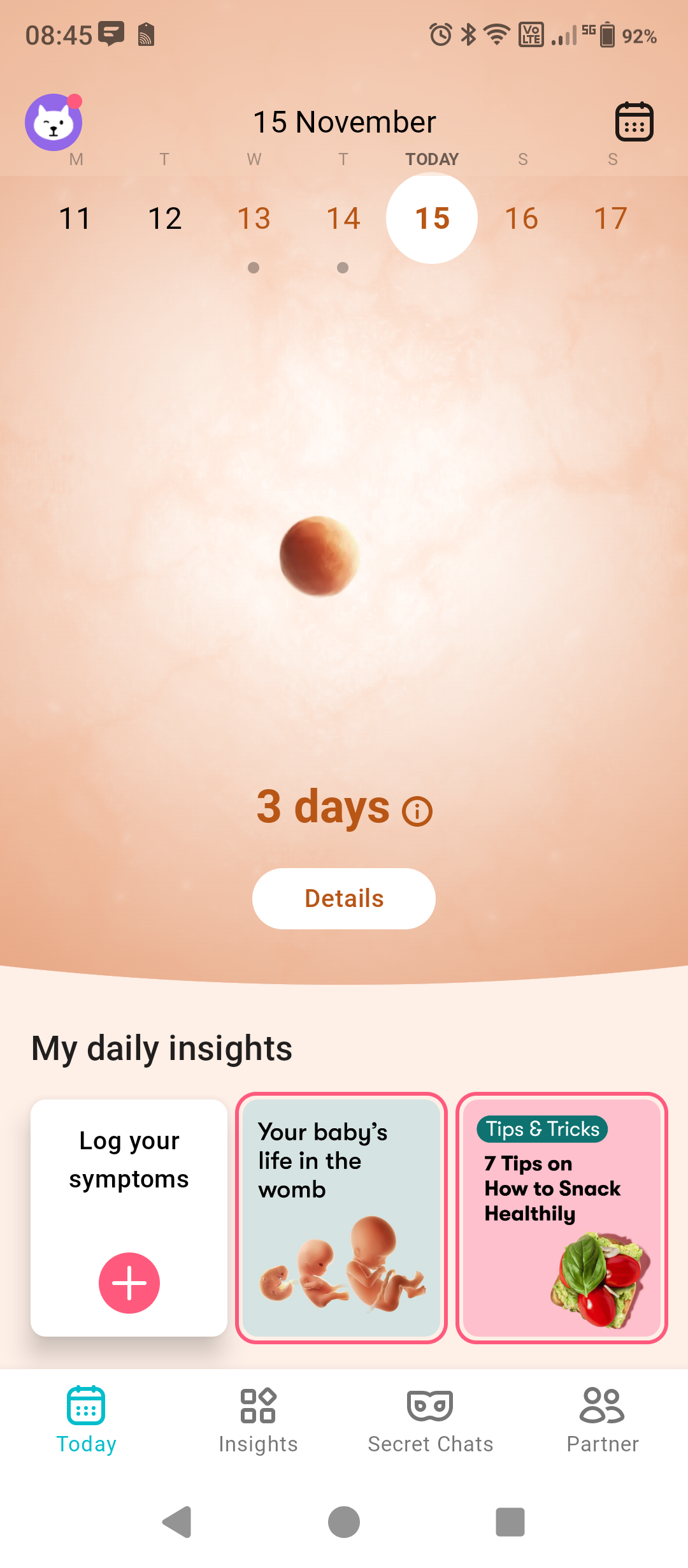
I fear it might not last the weekend tho.
Why in the world do we even need apps for this stuff? There is no reason to give your data to these companies at all.
Here’s a crazy thought: get a journal. And write in it.
I don’t know if you’re someone who’s not had to deal with menstrual cycles, but that’s not really helpful advice. Apps provide a lot of useful information and often integrate with other health data to offer better predictions and general insights. Many cycles are not “oh, it’s the 15th, here we go”. Many can be affected or predicted by mood/diet/symptoms. That’s a lot for a person to keep track of. My app will sometimes predict up to a 3 day shift and be completely accurate. I have looked at the graphs and sometimes you can point to a specific symptom and say, oh that must be what it used for that prediction, but sometimes you can’t. Get stressed every year around the holidays to the point where it changes your cycle? Your app will remember that. One less thing for your stressed mind to worry about. Additionally, even if they were super regular to the day, having an app to send a reminder, “hey! Get ready tomorrow” can be helpful to make sure you have any supplies you may need.
Also, we use apps for things we don’t need to all the time. And generally, it’s for the same reason: apps are easier and more accessible. Since you mentioned a journal, there are plenty of apps out there that replace journals themselves. They are used for several reasons, but one would imagine using an app is easier because it’s not an extra item you have to have on you and can potentially lose or forget to bring, it’s always on you so the resistance barrier is smaller, it might even have search functionality.
Do I think people should be randomly downloading these apps? No, it really doesn’t do anything at all. But blaming people for using conveniences because the government is trying to take away their rights is really missing the mark. It might be good opsec, but it’s dismissive at the least and not really solving the actual problem.
What a goddamn comment. Informative, thoughtful, and an amazing rebuttal without being condescending. Is best of a thing on here?
Provided I’m not missing sarcasm here, that’s nice of you to say, but honestly I certainly hope it wouldn’t be relevant in a best of. Lemmy is full of really helpful people in niche communities sharing their expertise, so I’d hope explaining why people use apps would be seen as out of place in a best of lol. Thank you regardless.
The absolute madlad
Based
Why are such apps popular? Do these offer something more than what a combination of reminders and notes (digital or analog) providr?
Perhaps, these apps offer some insights based on the data. But would one take the risk of listening to an app for medical advice?
Yeah, the only way anyone should have ever trusted these is if the data was stored locally only. There’s no reason for it to be uploaded.
Hi! Lots of people in this comment section who clearly don’t have periods, but yea they do offer something more. That’s why they’re used. It really feels like a bunch of presumably men are here in the comments to remind women that paper exists? Yea, we know. Other than these all being easily searchable questions, allow me to say we use them for many reasons including: Convenience - you almost always have your phone on hand. Do you really want to keep a dedicated period journal on your person at all times? Predictions - despite what you may believe, periods are not all regular. Some can skip months at a time. Most apps have a bunch of data sets they use to predict things even if your data isn’t complete Integrations - does my journal automatically cross reference my symptoms and alert me that it noticed that eating apples makes my headaches worse? No, and the level of analysis being done would need both an inhuman amount of time and resources to do by hand
Women are not “listening to an app for medical advice” so much as using apps predictive algorithm. The app has access to much more data than we do individually and it can be extremely helpful for women with irregular or extreme periods.
Is it great opsec? No. Sometimes things trump (lol) opsec. I still will advise against anyone (man or woman) downloading and using these apps if they have alternatives. The apple health app seems like a privacy focused one, but I can’t stress enough how none of that matters anyway. The courts and public opinion will be stacked against women in these positions, so any app data that can be used will be, and any lack of app data will just be used to make the case anyway. Keep as much data as you can as private as you can, regardless. People adding false data to the does nothing.
Here’s how I think about it:
I deleted Samsung Health from my phone not long after getting it. I started realizing that it’s a VERY network intensive app, it wanted a lot of questionable permissions, etc. I fully see the purpose of a Health & Fitness app in the lives of everyday people, I think it can be of legitimate help for encouraging people to exercise and whatever, the health features of that app were definitely developed with the same attitude a hunter baits a trap. It was what they begrudgingly did to get me to step in it.
I ditched Samsung Health because I had visions of them selling that data to my health insurance provider who would then use it as an excuse to make my coverage worse and therefore more profitable. So I’m pretty sure if I was a jew in 1930’s Germany I’d delete Synogogr from my phone.
Elsewhere, I’ve seen women tweet or Tumbl or whatever about refusing to discuss their periods with their doctors. “When was yoru last period?” “It’s regular, that’s all you need to know.” Where’s that energy when it’s a cell phone app?
I think it was probably a good move to stop using Samsung health. Hopefully you’re getting the features you need elsewhere or are staying healthy without it.
I think you are seeing some of that energy as it relates to these apps, hence the OOP, but for practicality sake, and maybe out of naivety, most women are not/don’t need to be as concerned as Jews in 1930s Germany. Most of the harm that will be done will be in removing access to future care and likely mainly to start in red states. If apps become a huge source of the issue, I think you’ll see a larger shift, but I imagine most of those cases would not need app data as a main source of evidence. You’ll see women dying of miscarriages more and more. And abortion will be more difficult to access, but I think there would have to be more cases where period app data was specifically used to convict before much changes. I think it’s difficult to accurately convey how important accurate tracking/predictions can be for some people, and how unwilling they would be to give that up. Especially if they are not in a situation where they are likely to get pregnant. The difference between telling your doctor your period is regular vs using an app is that your doctor is just not capable of giving up to the minute personalized information the way an app can. If people’s doctors were personally knocking on their door reminding them to take their medication twice a day and then giving them reminders that Wednesdays their symptoms are worse so maybe don’t plan a full body gym workout, they’d probably be less likely to withhold the information from their doctor, so I don’t really see the two as being directly comparable. Though, I generally agree with the sentiment that it’s bad idea to trust anyone with your data, especially health data or data that can be used to support a criminal case against you.
Thank you for providing detailed answers to my questions; which is what they are, just questions. I want to clarify, as much as your response suggests, I had not accused anyone or the apps of anything, nor was I belittling anyone for not knowing “paper exists”. But I do get your frustrations which such comments, mine included.
I just want to better understand the appeal of these apps – all health tracking apps for that matter, and not just period trackers.
I still feel using such apps was a bad idea even before the onset of the current cultural and political climate, despite the convenience offered.
We have been consulting actual doctors long before these apps appeared on the scene, who provide personalised advice without the risks of large-scale data tracking, whether it is for something as simple as a prolonged cold or as complicated as delayed periods.
P.S. Yes, these are easily searchable questions, but then there is never a need to have any discussion on a forum as everything is a search away. I figured a more direct conversation would give me a clearer sense of the actual user experience, especially given how nuanced such issues can be.
Thank you for not taking any offense to my frustrated tone, as it was indeed just that, frustration. Having questions and posting them here is completely understandable, and for what it’s worth, I’d rather people ask than just never get an answer.
Though you are allowed to have your own opinion and come to your own conclusions, I think the fact you stated that you think using the apps was a bad idea even before now, and that doctors have been helping people long before apps, demonstrates that either I was not clear enough, or you were unable to appreciate the lived experience of people affected by their periods.
Doctors regularly misunderstand, misdiagnose, and outright ignore period related medical issues. I’m not sure where you live, but even in a country with the best healthcare in the world, it’s literally impossible for doctors to provide the personalized information that apps can. I’m not saying that apps therefore must be used and are better than doctors, but I, a woman with periods, am telling you that my app has been more helpful than my doctor as far as managing my cycle goes. You don’t have to believe me, or you can say that you don’t think anything is worth the trade off in data for you as an individual, but people using these apps would obviously disagree. And not just because they don’t know they’re being tracked. We’re all being tracked to a certain extent and we decide what we’re willing to put up with in exchange. If you don’t think you’d share your data for that convenience, fine, but people share data for other conveniences all the time. It’s just extremely unfortunate that this data has now become so contentious.
Will it work if I do this from Canada? I haven’t had a period in over 4 years (help, I’ve been pregnant for 4 years!) But I want to help y’all too!













